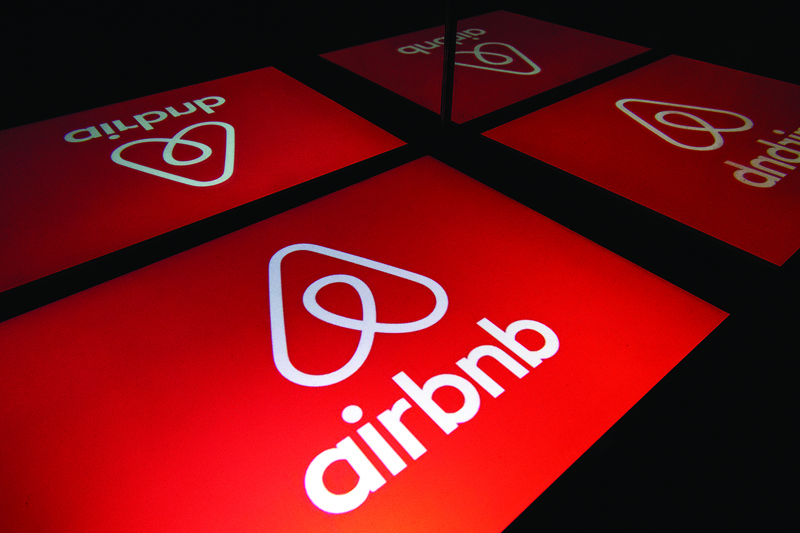
SAN FRANCISCO: Airbnb and DoorDash make their stock market debut this week as part of a "unicorn parade" capping a busy year for hot startups going public. The startups known as unicorns-valued in the billions-are poised to take advantage of a market hungry for young businesses promising fast growth, with some taking advantage of lifestyle changes due to the coronavirus pandemic.
This week's big initial public offerings (IPOs) include food-delivery service DoorDash, which has seen a surge during COVID-19 restrictions, to be followed by home-sharing platform Airbnb and e-commerce operation Wish. Firms going public with lofty valuations, some in the tens of billions, have been concentrated in technology, such as big data analytics group Palantir and cloud storage firm Snowflake earlier this year. There have been 420 initial public offerings (IPOs) on US markets so far this year, some 88 percent more that at this point a year earlier, according to StockAnalysis.com.
Companies have raised some $144.8 billion overall going public in US markets this year, the most by far in the past 25 years, according to Dealogic. "You are seeing some of the strongest tech companies of the last five to seven years come public, like Palantir," Wedbush analyst Dan Ives told AFP. "It has definitely been a strong year for IPOs." Appetite is particularly strong for "secular growth stories" in sectors such as e-commerce, cybersecurity, and cloud computing, Ives noted.
Growth opportunities
Startups are tapping into a prime time to raise money in the public market while their business models look promising and the market is eager for opportunities, according to analysts. "It is a case of striking while the iron is hot, because there is going to be a market correction," said analyst Rob Enderle of Enderle group. "You want to do an IPO and get your money before that happens." DoorDash is aiming high with an opening share price of $102, valuing the food delivery startup at $38.7 billion overall for its stock market debut Wednesday, according to US media reports.
DoorDash would be valued at $32.4 billion based on outstanding common stock alone, not adding in private stakes being held by insiders. That is still more than double the $16 billion that DoorDash was deemed worth during a private funding round in June. San Francisco-based DoorDash is out to raise more than $3 billion with the share offering. Renaissance Capital said of the DoorDash IPO that the "December unicorn IPO parade begins."
Delivery of meals and groceries has boomed during the pandemic, with restaurants offering no or limited dine-in options and people fearful of exposure to COVID-19. San Francisco-based DoorDash, which competes with GrubHub and Uber Eats, operates a leading online platform connecting people ordering food with those willing to deliver it. Some analysts are skeptical of the latest round of IPOs at current valuations.
Investment research firm New Constructs chief executive David Trainer warned investors about the DoorDash market debut, branding it "ridiculous." Trainer argued that the DoorDash offering "holds no value… beyond bailing out private investors before unsuspecting public investors realize the business is not viable in its current form."
Travel rebound?
Airbnb, on the other hand, which has seen its business crushed along with the rest of the travel industry, promises to be a better bet once people around the world return to vacationing and adventures, according to New Constructs. The research firm said Airbnb "has a plausible path to profitability and growth" if it can contain costs while expanding its global footprint.
The vacation rental platform, expected to hit the market Thursday, has fared better than travel industry peers with its home-sharing platform offering more appeal during the pandemic. A key question is whether these emerging firms represent the future or are just a flash in the pan. A strong stock market could bring out more IPOs including from the online financial groups such as Robinhood and SoFi.
Some analysts say the pandemic has distorted the economy and that it's too soon to know how these emerging firms will fare. "How long will the party last? No one knows," said Charlie Bilello of Compound Advisors in a research note, adding that "IPO fever (is) as hot as it's been since 1999-2000." "While there are certainly parallels to manias of the past, 2020 has taught us once again that every time is different," he noted. - AFP
.jpg)



